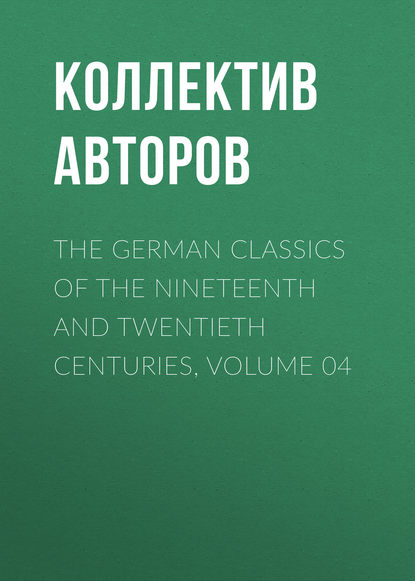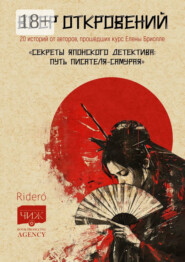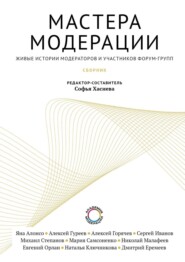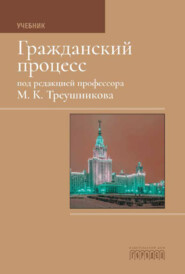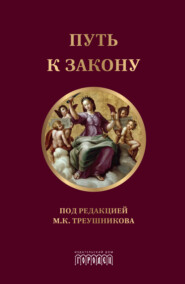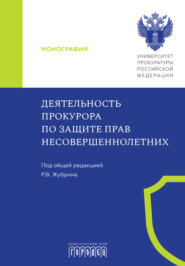По всем вопросам обращайтесь на: info@litportal.ru
(©) 2003-2024.
✖
The German Classics of the Nineteenth and Twentieth Centuries, Volume 04
Настройки чтения
Размер шрифта
Высота строк
Поля
He is an artist who has his centre within himself. He who lacks this must choose a definite leader and mediator outside himself—naturally, not forever, but only at the first. For without a living centre man cannot exist, and if he does not yet have it within himself he can seek it only in a human being, and only a human being and his centre can arouse and awaken the artist's own.
NOVALIS (FRIEDRICH VON HARDENBERG)
* * * * *
THE STORY OF HYACINTH AND ROSEBLOSSOM
From The Novices at Saïs (1798)
TRANSLATED BY LILLIE WINTER
Long ages ago there lived in the far west a guileless youth. He was very good, but at the same time peculiar beyond measure. He constantly grieved over nothing at all, always went about alone and silent, sat down by himself whenever the others played and were happy, and was always thinking about strange things. Woods and caves were his favorite haunts, and there he talked constantly with birds and animals, with rocks and trees—naturally not a word of sense, nothing but stuff silly enough to make one die a-laughing. Yet he continued to remain morose and grave in spite of the fact that the squirrel, the long-tailed monkey, the parrot, and the bullfinch took great pains to distract him and lead him into the right path. The goose would tell fairy-tales, and in the midst of them the brook would tinkle a ballad; a great heavy stone would caper about ludicrously; the rose stealing up affectionately behind him would creep through his locks, and the ivy stroke his careworn forehead. But his melancholy and his gravity were obstinate. His parents were greatly grieved; they did not know what to do. He was healthy and ate well. His parents had never hurt his feelings, nor until a few years since had any one been more cheerful and lively than he; always he had been at the head of every game, and was well liked by all the girls. He was very handsome indeed, looked like a picture, danced beautifully. Among the girls there was one sweet and very pretty child.
She looked as though she were of wax, with hair like silk spun of gold, lips as red as cherries, a figure like a little doll, eyes black as the raven. Such was her charm that whoever saw her might have pined away with love. At that time Roseblossom, that was her name, cherished a heart-felt affection for the handsome Hyacinth, that was his name, and he loved her with all his life. The other children did not know it. A little violet had been the first to tell them; the house-cats had noticed it, to be sure, for their parents' homes stood near each other. When, therefore, Hyacinth was standing at night at his window and Roseblossom at hers, and the pussies ran by on a mouse-hunt, they would see both standing, and would often laugh and titter so loudly that the children would hear them and grow angry. The violet had confided it to the strawberry, she told it to her friend, the gooseberry, and she never stopped taunting when Hyacinth passed; so that very soon the whole garden and the goods heard the news, and whenever Hyacinth went out they called on every side: "Little Roseblossom is my sweetheart!" Now Hyacinth was vexed, and again he could not help laughing from the bottom of his heart when the lizard would come sliding up, seat himself on a warm stone, wag his little tail, and sing
Little Roseblossom, good and kind,
Suddenly was stricken blind.
Her mother Hyacinth she thought
And to embrace him forthwith sought.
But when she felt the face was strange,
Just think, no terror made her change!
But on his cheek pressed she her kiss,
And she had noted naught amiss.
Alas, how soon did all this bliss pass away! There came along a man from foreign lands; he had traveled everywhere, had a long beard, deep-set eyes, terrible eyebrows, a strange cloak with many folds and queer figures woven in it. He seated himself in front of the house that belonged to Hyacinth's parents. Now Hyacinth was very curious and sat down beside him and fetched him bread and wine. Then the man parted his white beard and told stories until late at night and Hyacinth did not stir nor did he tire of listening. As far as one could learn afterward the man had related much about foreign lands, unknown regions, astonishingly wondrous things, staying there three days and creeping down into deep pits with Hyacinth. Roseblossom cursed the old sorcerer enough, for Hyacinth was all eagerness for his tales and cared for nothing, scarcely even eating a little food. Finally the man took his departure, not, however, without leaving Hyacinth a booklet that not a soul could read. The youth had even given him fruit, bread, and wine to take along and had accompanied him a long way. Then he came back melancholy and began an entirely new mode of life. Roseblossom grieved for him very pitifully, for from that time on he paid little attention to her and always kept to himself.
Now it came about that he returned home one day and was like one new-born. He fell on his parents' neck and wept. "I must depart for foreign lands," he said; "the strange old woman in the forest told me that I must get well again; she threw the book into the fire and urged me to come to you and ask for your blessing. Perhaps I shall be back soon, perhaps never more. Say good-bye to Roseblossom for me. I should have liked to speak to her, I do not know what is the matter, something drives me away; whenever I want to think of old times, mightier thoughts rush in immediately; my peace is gone, my courage and love with it, I must go in quest of them. I should like to tell you whither, but I do not know myself; thither where dwells the mother of all things, the veiled virgin. For her my heart burns. Farewell!"
He tore himself away and departed. His parents lamented and shed tears. Roseblossom kept in her chamber and wept bitterly. Hyacinth now hastened as fast as he could through valleys and wildernesses, across mountains and streams, toward the mysterious country. Everywhere he asked men and animals, rocks and trees, for the sacred goddess (Isis). Some laughed, some were silent, nowhere did he receive an answer. At first he passed through wild, uninhabited regions, mist and clouds obstructed his path, it was always storming; later he found unbounded deserts of glowing hot sand, and as he wandered his mood changed, time seemed to grow longer, and his inner unrest was calmed. He became more tranquil and the violent excitement within him was gradually transformed to a gentle but strong impulse, which took possession of his whole nature. It seemed as though many years lay behind him. Now, too, the region again became richer and more varied, the air warm and blue, the path more level; green bushes attracted him with their pleasant shade but he did not understand their language, nor did they seem to speak, and yet they filled his heart with verdant colors, with quiet and freshness. Mightier and mightier grew within him that sweet longing, broader and softer the leaves, noisier and happier the birds and animals, balmier the fruits, darker the heavens, warmer the air and more fiery his love; faster and faster passed the Time, as though it knew that it was approaching the goal.
One day he came upon a crystal spring and a bevy of flowers that were going down to a valley between black columns reaching to the sky. With familiar words they greeted him kindly. "My dear countrymen," he said, "pray, where am I to find the sacred abode of Isis? It must be somewhere in this vicinity, and you are probably better acquainted here than I." "We, too, are only passing through this region," the flowers answered; "a family of spirits is traveling and we are making ready the road and preparing lodgings for them; but we came through a region lately where we heard her name called. Just walk upward in the direction from which we are coming and you will be sure to learn more." The flowers and the spring smiled as they said this, offered him a drink of fresh water, and went on.
Hyacinth followed their advice, asked and asked, and finally reached that long-sought dwelling concealed behind palms and other choice plants. His heart beat with infinite longing and the most delicious yearning thrilled him in this abode of the eternal seasons. Amid heavenly fragrance he fell into slumber, since naught but dreams might lead him to the most sacred place. To the tune of charming melodies and in changing harmonies did his dream guide him mysteriously through endless apartments filled with curious things. Everything seemed so familiar to him and yet amid a splendor that he had never seen; then even the last tinge of earthliness vanished as though dissipated in the air, and he stood before the celestial virgin. He lifted the filmy, shimmering veil and Roseblossom fell into his arms. From afar a strain of music accompanied the mystery of the loving reunion, the outpourings of their longing, and excluded all that was alien from this delightful spot. After that Hyacinth lived many years with Roseblossom near his happy parents and comrades, and innumerable grandchildren thanked the mysterious old woman for her advice and her fire; for at that time people got as many children as they wanted.
APHORISMS[33 - Permission Porter & Coates, Philadelphia.]
By NOVALIS
TRANSLATED BY FREDERIC H. HEDGE
Where no gods are, spectres rule.
The best thing that the French achieved by their Revolution, was a portion of Germanity.
Germanity is genuine popularity, and therefore an ideal.
Where children are, there is the golden age.
Spirit is now active here and there: when will Spirit be active in the whole? When will mankind, in the mass, begin to consider?
Nature is pure Past, foregone freedom; and therefore, throughout, the soil of history.
The antithesis of body and spirit is one of the most remarkable and dangerous of all antitheses. It has played an important part in history.
Only by comparing ourselves, as men, with other rational beings, could we know what we truly are, what position we occupy.
The history of Christ is as surely poetry as it is history. And, in general, only that history is history which might also be fable.
The Bible begins gloriously with Paradise, the symbol of youth, and ends with the everlasting kingdom, with the holy city. The history of every man should be a Bible.
Prayer is to religion what thinking is to philosophy. To pray is to make religion.
The more sinful man feels himself, the more Christian he is.
Christianity is opposed to science, to art, to enjoyment in the proper sense.
It goes forth from the common man. It inspires the great majority of the limited on earth.
It is the germ of all democracy, the highest fact in the domain of the popular.
Light is the symbol of genuine self-possession. Therefore light, according to analogy, is the action of the self-contact of matter. Accordingly, day is the consciousness of the planet, and while the sun, like a god, in eternal self-action, inspires the centre, one planet after another closes one eye for a longer or shorter time, and with cool sleep refreshes itself for new life and contemplation. Accordingly, here, too, there is religion. For is the life of the planets aught else but sun-worship?
The Holy Ghost is more than the Bible. This should be our teacher of religion, not the dead, earthly, equivocal letter.
All faith is miraculous, and worketh miracles.
Sin is indeed the real evil in the world. All calamity proceeds from that. He who understands sin, understands virtue and Christianity, himself and the world.
The greatest of miracles is a virtuous act.
If a man could suddenly believe, in sincerity, that he was moral, he would be so.
We need not fear to admit that man has a preponderating tendency to evil. So much the better is he by nature, for only the unlike attracts.
Everything distinguished (peculiar) deserves ostracism. Well for it if it ostracizes itself. Everything absolute must quit the world.
A time will come, and that soon, when all men will be convinced that there can be no king without a republic, and no republic without a king; that both are as inseparable as body and soul. The true king will be a republic, the true republic a king.
In cheerful souls there is no wit. Wit shows a disturbance of the equipoise.
Most people know not how interesting they are, what interesting things they really utter. A true representation of themselves, a record and estimate of their sayings, would make them astonished at themselves, would help them to discover in themselves an entirely new world.
Man is the Messiah of Nature.
The soul is the most powerful of all poisons. It is the most penetrating and diffusible stimulus.
Every sickness is a musical problem; the cure is the musical solution.





